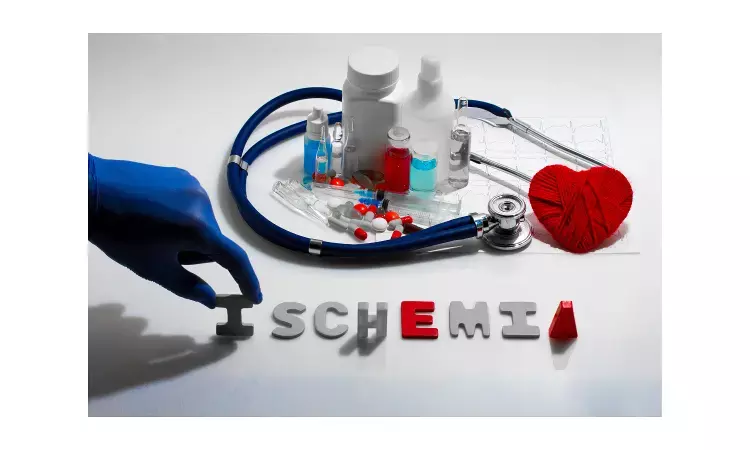- Home
- Medical news & Guidelines
- Anesthesiology
- Cardiology and CTVS
- Critical Care
- Dentistry
- Dermatology
- Diabetes and Endocrinology
- ENT
- Gastroenterology
- Medicine
- Nephrology
- Neurology
- Obstretics-Gynaecology
- Oncology
- Ophthalmology
- Orthopaedics
- Pediatrics-Neonatology
- Psychiatry
- Pulmonology
- Radiology
- Surgery
- Urology
- Laboratory Medicine
- Diet
- Nursing
- Paramedical
- Physiotherapy
- Health news
- Fact Check
- Bone Health Fact Check
- Brain Health Fact Check
- Cancer Related Fact Check
- Child Care Fact Check
- Dental and oral health fact check
- Diabetes and metabolic health fact check
- Diet and Nutrition Fact Check
- Eye and ENT Care Fact Check
- Fitness fact check
- Gut health fact check
- Heart health fact check
- Kidney health fact check
- Medical education fact check
- Men's health fact check
- Respiratory fact check
- Skin and hair care fact check
- Vaccine and Immunization fact check
- Women's health fact check
- AYUSH
- State News
- Andaman and Nicobar Islands
- Andhra Pradesh
- Arunachal Pradesh
- Assam
- Bihar
- Chandigarh
- Chattisgarh
- Dadra and Nagar Haveli
- Daman and Diu
- Delhi
- Goa
- Gujarat
- Haryana
- Himachal Pradesh
- Jammu & Kashmir
- Jharkhand
- Karnataka
- Kerala
- Ladakh
- Lakshadweep
- Madhya Pradesh
- Maharashtra
- Manipur
- Meghalaya
- Mizoram
- Nagaland
- Odisha
- Puducherry
- Punjab
- Rajasthan
- Sikkim
- Tamil Nadu
- Telangana
- Tripura
- Uttar Pradesh
- Uttrakhand
- West Bengal
- Medical Education
- Industry
Routine invasive therapy does not reduce major ischemic events: ISCHEMIA Trial

Ischemia is a serious concern as some part of the body, vital organs such as heart or brain, isn't getting enough blood. Approximately 1.5 million cases of ischemic myocardial infarction (MI) occur annually in the United States; the yearly incidence rate is approximately 600 cases per 100,000 people. The goal of myocardial ischemia treatment is to improve blood flow to the heart muscle. Depending on the severity of your condition, doctor may recommend medications, surgery or both.
The ISCHEMIA trial fails at proving that routine invasive therapy was associated with a reduction in major adverse ischemic events compared with optimal medical therapy among stable patients with moderate ischemia.
Trial is published in journal American College of Cardiology
The trial compared routine invasive therapy with optimal medical therapy among patients with stable ischemic heart disease and moderate to severe myocardial ischemia on noninvasive stress testing. Patients with stable ischemic heart disease and moderate to severe ischemia were randomized to routine invasive therapy included 2,588 participants versus medical therapy had 2,591.
In the routine invasive therapy group, subjects underwent coronary angiography and percutaneous coronary intervention (PCI) or coronary artery bypass grafting (CABG) as appropriate. The primary outcome of cardiovascular death, myocardial infarction, resuscitated cardiac arrest, or hospitalization for unstable angina or heart failure at 3.3 years occurred in 13.3% of the routine invasive group compared with 15.5% of the medical therapy group.
Over the entire follow-up period, cardiac catheterization was performed in 96%of the invasive group vs. 28% of the medical therapy group. Coronary revascularization was performed in 80% of the invasive group vs. 23% of the medical therapy group
Results concluded among patients with stable ischemic heart disease and moderate to severe ischemia on noninvasive stress testing, routine invasive therapy failed to reduce major adverse cardiac events compared with optimal medical therapy. There was possible enhanced benefit for invasive compared with heart failure/left ventricular dysfunction.
Reference: https://www.acc.org/latest-in-cardiology/clinical-trials/2019/11/15/17/27/ischemia
Medical Dialogues consists of a team of passionate medical/scientific writers, led by doctors and healthcare researchers. Our team efforts to bring you updated and timely news about the important happenings of the medical and healthcare sector. Our editorial team can be reached at editorial@medicaldialogues.in.


